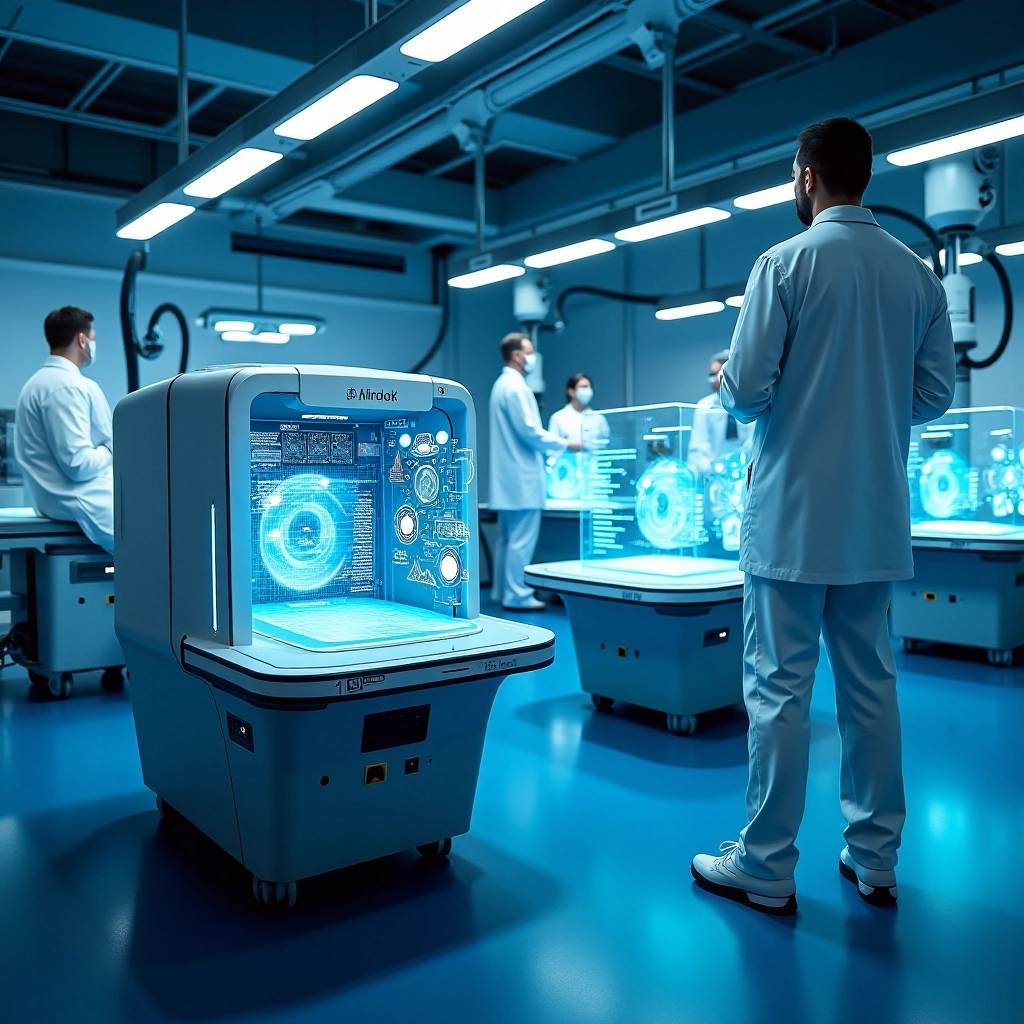
AI Airlock Initiative by MHRA Accelerates Healthcare Technology Integration and Adoption
The Medicine and Healthcare products Regulatory Agency (MHRA) has recently launched an innovative pilot program called the AI Airlock Initiative. This program is designed to streamline the integration and adoption of artificial intelligence (AI) technologies in healthcare, which could significantly improve patient care and operational efficiency. The following article delves into the details of this groundbreaking initiative, exploring its potential to revolutionize the healthcare landscape.
Understanding the AI Airlock Initiative
The AI Airlock Initiative serves as a controlled testing environment where AI solutions can be comprehensively assessed before full-scale deployment. By creating this sandbox environment, the MHRA aims to foster a space where innovations can be tested against regulatory frameworks, ensuring safety, efficacy, and adherence to existing healthcare standards.
The Role of MHRA in Healthcare Innovation
The MHRA’s involvement in this initiative demonstrates its commitment to supporting healthcare advancements while maintaining rigorous safety protocols. By facilitating the development and evaluation of AI technologies, the MHRA ensures these solutions are well-aligned with patient care standards and regulatory compliance.
Key Features of the AI Airlock Initiative
Regulatory Guidance and Support
The AI Airlock provides regulatory guidance to developers, helping them navigate complex healthcare regulations. This support aids innovators in understanding and meeting necessary compliance requirements, which can often be a major hurdle in the development process.
Controlled Environment for Testing
The initiative offers a safe, controlled environment where AI applications can be trialed. This not only helps in identifying potential risks early on but also allows developers to refine their technologies to better meet patient needs.
Enhanced Collaboration and Networking
The AI Airlock fosters collaboration between technology developers, healthcare providers, and regulators. This networking opportunity can lead to improvements in AI applications through shared insights and expertise.
Benefits of AI in Healthcare
AI technologies have the potential to transform healthcare by improving diagnostic accuracy, personalizing patient treatment plans, and increasing the efficiency of healthcare delivery. These advancements can lead to better patient outcomes and reduced healthcare costs.
Challenges and Considerations
While the adoption of AI in healthcare holds immense promise, it is not without challenges. Concerns regarding data privacy, ethical use, and integration with existing healthcare systems must be addressed to ensure successful implementation. The AI Airlock Initiative aims to tackle these challenges by providing clear regulatory pathways and support.
Future Prospects and Conclusion
The AI Airlock Initiative by MHRA represents a critical step forward in the quest to integrate advanced technologies into healthcare. As AI continues to evolve, initiatives like these are vital in ensuring innovations are safe, effective, and beneficial to society. By facilitating the responsible adoption of AI, the MHRA is not only setting a precedent in regulatory practice but also paving the way for a more technologically advanced and patient-centered healthcare system.
In conclusion, the AI Airlock Initiative exemplifies how regulatory bodies can actively support technological advancements. As more healthcare providers and tech developers engage with this initiative, the healthcare industry can expect significant enhancements in both operation and service delivery.